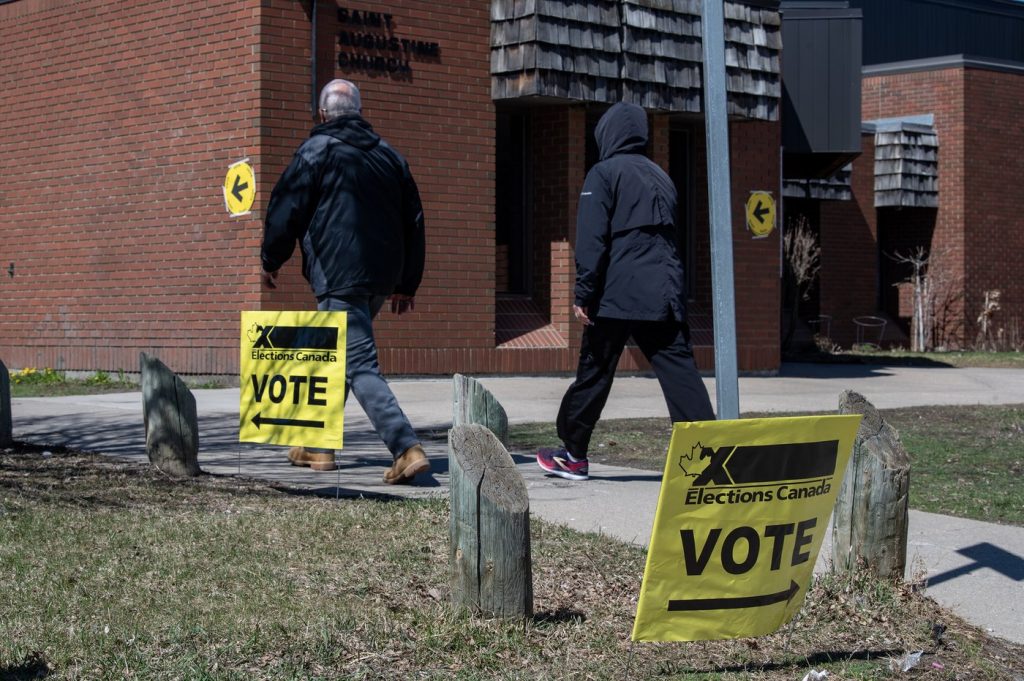OTTAWA – A recent Leger poll indicates that over three-quarters of Canadians believe that misinformation significantly influenced the outcome of the federal election. The online survey, which included a sample of more than 1,500 Canadian adults between April 29 and May 1, reveals that 19 percent of respondents perceive misinformation as having a major impact on the election. Additionally, 32 percent believe it had a moderate impact, while 26 percent assert it had a minor impact. A small nine percent of Canadians thought misinformation did not affect the election at all.
The findings suggest a regional variance in perceptions, with Alberta respondents being the most likely to attribute electoral impact to misinformation, at 86 percent. Quebec follows with 79 percent, while Ontario registers at 76 percent and British Columbia at 73 percent. Gender-wise, 80 percent of men attribute a role to misinformation, compared to 74 percent of women. Age demographics reveal that voters aged 18 to 34 are the most likely to feel that misinformation affected the election (81 percent), followed by 77 percent of those aged 35 to 54, and 74 percent of individuals aged 55 and older.
When looking at political affiliations, Liberal supporters are the least likely to believe that misinformation played a role, with only 74 percent in agreement, compared to 83 percent of Conservative voters and an overwhelming 87 percent of NDP supporters. Andrew Enns, Leger’s executive vice-president for Central Canada, noted ongoing public discourse surrounding foreign interference in Canadian politics could be influencing these perceptions.
During the election campaign, Canadian security officials reported detecting a foreign online operation targeting a Conservative candidate who opposed Chinese government policies. Additionally, there were indications of online misinformation operations linked to the Chinese government focusing on Prime Minister Mark Carney. Laurie-Anne Kempton, assistant secretary to the cabinet for communications, reiterated that Canadians could vote with confidence regarding the integrity and security of the electoral system. Federal officials also cautioned voters to be vigilant against potential disinformation during the election debates.
Enns characterized “misinformation” as a broad term, positing that poll respondents might have included rumors and candidate-related claims in their responses. He speculated that negative campaigning and ads could also be inadvertently categorized under misinformation by the electorate.
The poll further indicates that just under two-thirds of Canadians, specifically 65 percent, trust the accuracy of the election results. Of these, 36 percent reported a high level of trust ("a great deal"), while 29 percent expressed a moderate level of trust ("a lot"). Conversely, 16 percent only trusted the results "a little," and 13 percent claimed to have no trust at all. Regional results show that Quebec residents exhibit the highest trust levels at 77 percent, followed by 70 percent in British Columbia, 62 percent in Ontario, and 53 percent in Alberta.
Among age groups, seniors (aged 55 and older) demonstrated the most trust in election results at 72 percent, compared to 61 percent of young voters (aged 18 to 34) and 59 percent of those aged 35 to 54. Additionally, 96 percent of Liberal supporters trust the results, which is considerably higher than the 74 percent of NDP voters and a mere 44 percent of Conservatives expressing trust.
Enns remarks that these findings reflect a troubling decline in public trust towards institutions, particularly noting a divide among party supporters where Conservative constituents display lower levels of trust. This skepticism may stem from exposure to reports of interference and conspiracy theories circulating among voters.
It is pertinent to mention that Leger did not ask questions regarding misinformation or trust in results following the 2021 election. According to the Elections Canada website, a similar survey conducted during the 2021 election found that about 52 percent of respondents viewed the spread of false information online as a problem, aligning closely with the 50 percent from the 2019 election. The data illustrates a consistent concern regarding the influence of misinformation and foreign interference on Canadian electoral processes.
Ultimately, the Canadian Research Insights Council advises that online surveys cannot be assigned a margin of error due to their non-random sampling methods. These developments highlight the ongoing discourse around misinformation and its alleged effects on public confidence in electoral outcomes.











